https://aiode.com/product are revolutionizing music production by breaking down barriers to creativity and accessibility. These tools, leveraging machine learning, generate melodies, harmonize chords, create rhythms, and even compose entire songs, streamlining workflows from idea generation to mixing and mastering. They democratize music creation, empowering artists from diverse backgrounds, and foster experimentation and innovation in sound design and mixing. Additionally, AI acts as personalized coaches for practice sessions, accelerating learning curves. The future of music production is being reshaped by these tools, enabling remote collaboration and redefining industry dynamics through inclusivity and digital sharing.
“Discover the revolutionary world of AI music tools, transforming the creative landscape for musicians and producers. This blog explores how artificial intelligence is shaking up music production, from composition to collaboration. Learn how these innovative tools unlock endless possibilities, enhance sound design, and personalize skill development. From generating melodies to mixing masterpieces, AI music tools are a game-changer, democratizing access to professional-level music creation. Dive into this comprehensive guide to understand the present and future of AI in music.”
- The Evolution of AI in Music Production: A Game-Changer for Musicians
- Unlocking Creative Potential: AI Tools for Composing and Arranging
- From Generation to Enhancement: AI's Role in Sound Design and Mixing
- Personalized Practice and Feedback: AI Coaches for Musical Skill Development
- The Future of Music Industry: AI's Impact on Collaboration and Distribution
The Evolution of AI in Music Production: A Game-Changer for Musicians
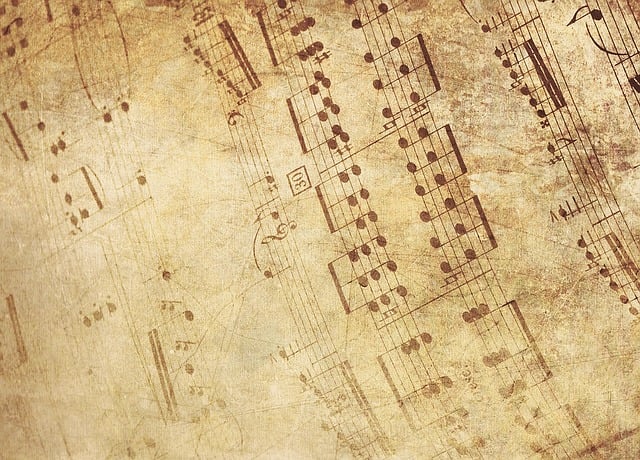
The evolution of AI in music production has opened up a world of possibilities for musicians, transforming the creative process and offering unprecedented levels of accessibility. Traditional methods of composing and producing music often required extensive skills, time, and resources. However, with the advent of AI music tools, these barriers are gradually being broken down. These tools can generate melodies, harmonize chords, create rhythms, and even compose entire songs, all at the click of a button.
Musicians now have access to an array of AI-powered software that streamlines production processes, enhances creativity, and accelerates time-consuming tasks. From generating initial song ideas to mixing and mastering, AI music tools are revolutionizing every stage of music creation. This game-changer technology is democratizing the music industry, enabling artists from all backgrounds to bring their musical visions to life with ease and efficiency.
Unlocking Creative Potential: AI Tools for Composing and Arranging
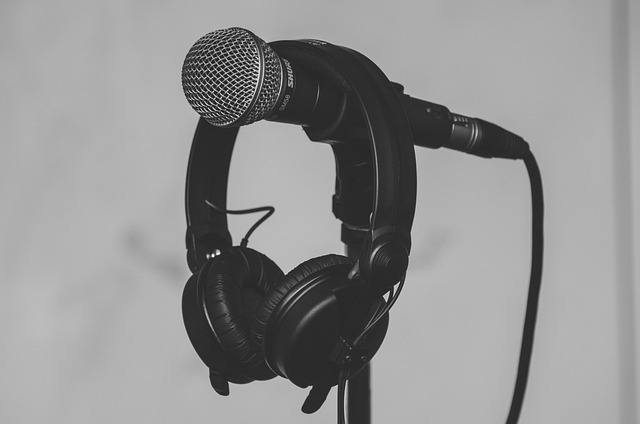
AI music tools are revolutionizing the creative process for musicians and producers, unlocking a vast potential to compose and arrange music in unprecedented ways. These intelligent systems can generate melodies, harmonize chords, and even create dynamic arrangements, all while adapting to individual artistic styles. By leveraging machine learning algorithms, AI tools learn from vast datasets of musical compositions, enabling them to produce unique and captivating sounds.
Musicians can use these tools to overcome creative blocks, explore new musical territories, and streamline their workflow. Whether it’s crafting a catchy hook or structuring an entire song, AI music tools offer a supportive environment that fosters experimentation and innovation. With their ability to enhance human creativity, these technologies are becoming indispensable assets in the modern music production landscape.
From Generation to Enhancement: AI's Role in Sound Design and Mixing
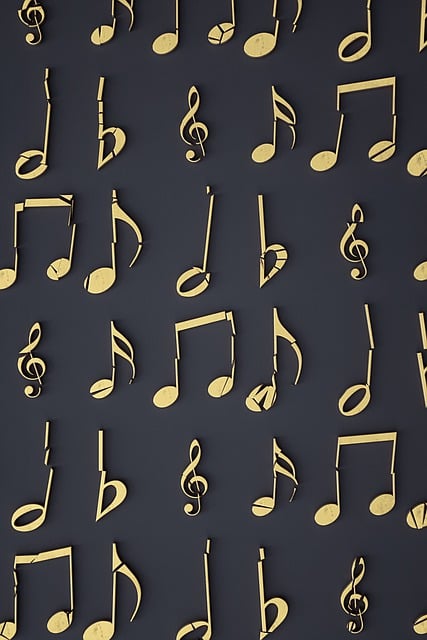
AI music tools have emerged as a game-changer in the realm of sound design and mixing, offering musicians and producers an unprecedented level of creativity and efficiency. These advanced algorithms can generate unique and diverse sounds, from atmospheric pads to punchy drums, eliminating the need for extensive sampling or complex synthesis techniques. By learning from vast datasets, AI models can create musical content that is both original and tailored to specific requirements.
Beyond generation, AI enhances mixing processes by providing intuitive and intelligent assistance. It can automatically adjust levels, apply effects, and even suggest creative panning and placement of sounds within the mix. This not only speeds up the production process but also ensures a more professional-sounding result, allowing musicians to focus on their artistic vision. With its ability to analyze and manipulate audio signals, AI is revolutionizing how music is crafted and produced, opening new avenues for musical expression and innovation.
Personalized Practice and Feedback: AI Coaches for Musical Skill Development
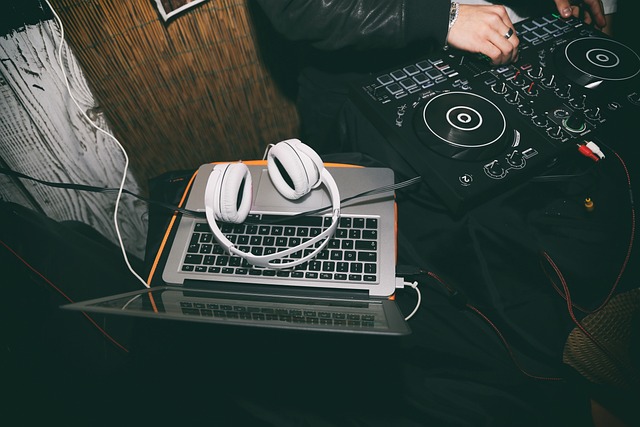
Music practice just got a whole lot smarter with AI music tools. These innovative technologies act as personalized coaches, providing tailored feedback to help musicians improve their skills. Imagine having a virtual mentor who listens to your performance and offers specific tips on how to refine your technique, enhance your timing, or even suggest new creative directions. This level of individualized attention can accelerate learning curves and foster growth in areas that might otherwise be overlooked.
AI coaches can adapt to each musician’s unique needs, making practice sessions more efficient and effective. They can analyze performance data, offer insights into musical theory, and even compose complementary backing tracks to facilitate focused practice. By leveraging AI music tools for personalized guidance, musicians can unlock their full potential, turning practice time into a dynamic and engaging journey of musical discovery.
The Future of Music Industry: AI's Impact on Collaboration and Distribution
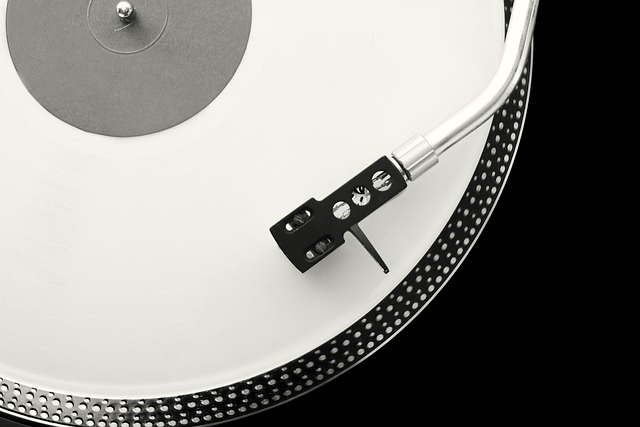
The future of the music industry is being reshaped by artificial intelligence (AI) music tools, revolutionizing both collaboration and distribution dynamics. AI is democratizing music production by providing accessible, powerful software that enables musicians to create, edit, and mix tracks with ease. This shift lowers barriers to entry, fostering a more diverse and inclusive creative space where anyone can be an artist.
Furthermore, AI facilitates unprecedented levels of collaboration. Musicians can now use these tools to seamlessly work together remotely, sharing ideas, arranging compositions, and enhancing their creations through machine learning algorithms that suggest harmonies, melodies, and even entire arrangements. This collaborative landscape, powered by AI music tools, promises to redefine the way music is made and shared in the digital age.
In conclusion, AI music tools have emerged as a transformative force in the musical landscape, offering musicians and producers an array of innovative solutions. From composition and arrangement to sound design and skill development, these tools are revolutionizing how we create and appreciate music. As the article has explored, AI’s role in music production is no longer a mere novelty but a game-changer that promises to democratize access to high-quality musical experiences, fostering collaboration and enhancing creativity. Embracing these technologies will be key for musicians to stay ahead in today’s digital era.
